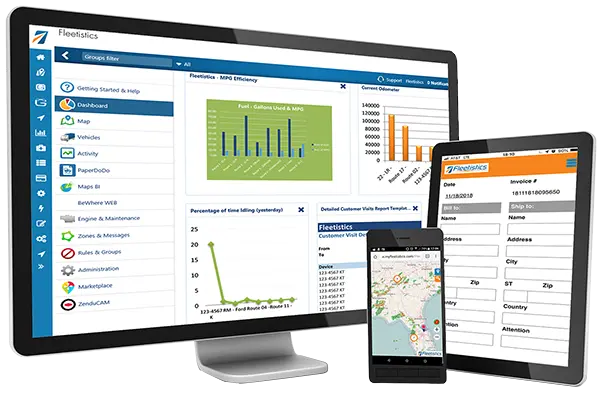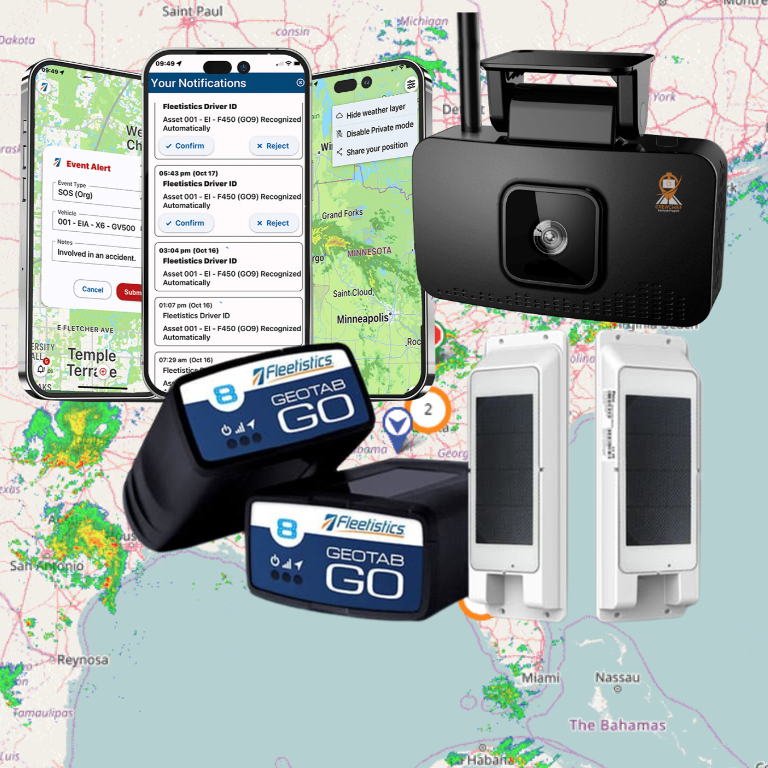Navigating the Road to Carbon Neutrality
Tackling Emissions Reduction Goals in Fleet Operations
The imperative to reduce carbon emissions is more critical than ever. As industries grapple with the realities of climate change, fleet operations stand at a crucial juncture to lead the charge towards sustainability. Fleet managers play a pivotal role in steering their organizations towards carbon neutrality, and beyond, through strategic initiatives and innovative solutions. In this blog, we’ll explore how fleet managers can navigate the road to emissions reduction and embrace a greener future for manufacturing logistics management.

Emmissions Reduction – Assessing Your Current Footprint
The journey towards carbon neutrality begins with understanding your baseline emissions. Fleet managers must conduct comprehensive assessments to quantify their current carbon footprint accurately. This involves evaluating fuel consumption, vehicle efficiency, mileage, and operational practices. By gaining insight into where emissions originate, fleet managers can identify areas for improvement and set realistic reduction targets.
Switch to Cleaner Fuels and Vehicles
Transitioning to cleaner fuels and vehicles is a cornerstone of emissions reduction efforts. Electric vehicles (EVs), hybrid vehicles, and vehicles powered by alternative fuels such as biodiesel or compressed natural gas (CNG) offer significant environmental benefits compared to traditional gasoline or diesel counterparts. Fleet managers should prioritize the adoption of low-emission vehicles and invest in infrastructure to support their deployment, such as charging stations or refueling stations.
Optimize Your Routes and Loads
Efficient route planning and load optimization are essential strategies for minimizing emissions in fleet operations. By leveraging advanced routing software and telematics technology, fleet managers can identify the most fuel-efficient routes, reduce idle time, and consolidate deliveries to maximize vehicle capacity utilization. Additionally, optimizing loads helps to minimize the number of trips required, further reducing emissions and operating costs.
Implement Green Logistics Practices
Beyond vehicle-centric solutions, fleet managers can implement green logistics practices to reduce emissions across the supply chain. This includes strategies such as consolidating shipments, utilizing intermodal transportation, and employing Just-In-Time (JIT) delivery schedules to minimize unnecessary transportation and storage. Additionally, adopting sustainable packaging materials and collaborating with eco-friendly suppliers can further mitigate environmental impact.
Offset Your Remaining Emissions
While striving for carbon neutrality within fleet operations is commendable, it may not always be feasible to eliminate all emissions entirely. In such cases, fleet managers can offset their remaining emissions by investing in carbon offset projects. These initiatives support renewable energy projects, reforestation efforts, and other initiatives that sequester or reduce greenhouse gas emissions, effectively balancing out the carbon footprint of fleet operations.
Achieve Carbon Neutrality and Beyond
Carbon neutrality marks a significant milestone in the journey towards sustainability, but it should not be the end goal. Fleet managers should continuously seek opportunities for further emissions reductions and strive to surpass carbon neutrality. This may involve exploring emerging technologies, adopting innovative practices, and collaborating with stakeholders to drive systemic change across the industry. By embracing a culture of continuous improvement and innovation, fleet operations can lead the way towards a truly sustainable future.
Here’s What Else to Consider
- Invest in driver training programs to promote fuel-efficient driving behaviors and vehicle maintenance best practices.
- Explore opportunities for vehicle electrification and renewable energy integration within fleet operations.
- Engage with policymakers and industry stakeholders to advocate for supportive regulations and incentives for sustainable transportation.
- Monitor and track emissions data regularly to evaluate the effectiveness of emissions reduction strategies and adjust course as needed.
- Educate employees, customers, and partners about the importance of emissions reduction and foster a culture of environmental stewardship within the organization
In conclusion, tackling emissions reduction goals in fleet operations requires a multifaceted approach that encompasses technology, strategy, and collaboration. By embracing cleaner fuels, optimizing operations, and offsetting emissions, fleet managers can lead the transition towards a greener, more sustainable future for manufacturing logistics management. Together, we can pave the way for a world where fleet operations not only minimize their environmental impact but also contribute to the preservation of our planet for future generations.














